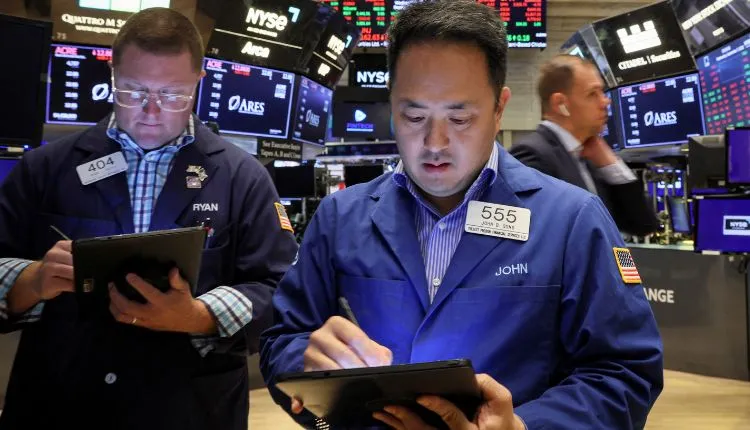Introduction:
The stock market has once again become a focal point of investors’ attention as volatility persists amidst ongoing global uncertainty. In recent weeks, various factors have contributed to a rollercoaster ride for investors, prompting both excitement and anxiety. This article aims to provide a comprehensive overview of the current state of the stock market, analyzing key trends and factors that are shaping its performance.
Market Overview:
The stock market has experienced notable ups and downs in recent weeks, reflecting the uncertainty surrounding global economic conditions. Factors such as geopolitical tensions, inflation concerns, and the impact of the ongoing pandemic have contributed to this volatility. Investors have been closely monitoring the performance of major stock indices, such as the S&P 500, Dow Jones Industrial Average, and Nasdaq Composite, which have experienced significant fluctuations.
Geopolitical Tensions:
Geopolitical tensions continue to play a role in shaping market sentiment. Heightened tensions between major economies, trade disputes, and political instability in certain regions have raised concerns among investors. Uncertainty surrounding the outcome of these conflicts has led to market fluctuations, as investors assess the potential impact on global trade, supply chains, and economic growth.
Inflation Concerns:
Inflation has emerged as a significant concern for investors, with rising prices across various sectors of the economy. Central banks and policymakers are closely monitoring inflation indicators, such as consumer price indexes, to gauge the extent of the issue. Higher inflation can erode purchasing power and potentially lead to tighter monetary policies, which could impact corporate profits and stock market performance.
The Impact of the Ongoing Pandemic:
The COVID-19 pandemic continues to exert its influence on the stock market. Although vaccination efforts have provided a glimmer of hope, the emergence of new variants and the potential for prolonged economic recovery have created an environment of uncertainty. Industries such as travel, hospitality, and entertainment, which were hit hardest by the pandemic, are still grappling with challenges, while sectors like technology and e-commerce have thrived. The interplay between these factors has resulted in divergent performance among individual stocks and sectors.
Conclusion:
In conclusion, the stock market remains highly volatile as global uncertainty persists. Geopolitical tensions, inflation concerns, and the ongoing pandemic are contributing factors that have resulted in market fluctuations. Investors should closely monitor these developments, remain cautious, and focus on long-term investment strategies. Diversification and conducting thorough research before making investment decisions are key to navigating the current market environment successfully.
FAQs:
- Q: How can I protect my investments during periods of stock market volatility? A: During periods of volatility, it is essential to review your investment portfolio and ensure it is properly diversified across different asset classes and sectors. Consider adding defensive investments, such as bonds or dividend-paying stocks, which tend to be more resilient during market downturns. Additionally, maintaining a long-term perspective and avoiding impulsive decisions based on short-term market movements can help protect your investments.
- Q: What sectors are expected to perform well in the current market environment? A: While it’s challenging to predict specific sectors that will outperform, certain industries have shown resilience in the face of uncertainty. Technology, healthcare, and renewable energy sectors have demonstrated strong growth potential. However, conducting thorough research and analysis of individual companies within these sectors is crucial before making investment decisions.
Q: How does global economic growth impact the stock market? A: Global economic growth plays a vital role in stock market performance. When economies are expanding, companies tend to experience higher revenues and profits, which can drive stock prices higher. Conversely, economic slowdowns or recessions can lead to reduced corporate earnings and a decline in stock prices. Monitoring key economic indicators, such as GDP growth rates, employment data,

